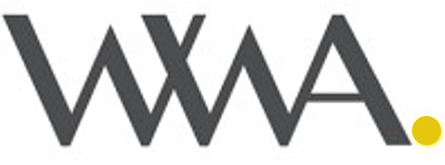Get to know SR&ED: the Canadian tax incentive program designed to drive innovation.
Improving product, increasing production, and expediting processes - these are just a handful of the ongoing challenges that you, as a business owner, meet on a daily basis. Finding answers to these questions requires a lot of trial, some error, and a ton of research. If you’re a Canadian business owner, or do business within Canada, you can receive funding (in the form of tax credits) for seeking answers to exactly these kinds of questions.
The Canadian Federal and Provincial Governments provide over $3 billion in funding to business owners every year, simply to encourage them to continue asking questions, and to support them as they research to find answers.
The Scientific Research & Experimental Development (SR&ED) Program is designed to support innovators – just like you. So, what is SR&ED, what expenses can you claim, and how does it work?
SR&ED is Government Support for Business Development.
The SR&ED Program is a tax and business development incentive strategy that provides a financial boost to Canadian research and innovation. Business owners, their teams, or contracted consultants submit claims (which must firmly adhere to the laws, policies, and procedures of the Canada Revenue Agency) and receive a percentage of their expenses back in the form of an Income Tax Refund (ITC).
The SR&ED Program follows an intense regulatory structure, and business owners (for the consultants they hire) must take measures to ensure their claims are accurate, factual, and well substantiated. Consultants (like our team at WWA ) significantly reduce risks of penalties, save time and resources, and provide peace of mind.
Your research project probably qualifies.
If your business conducts research to answer questions, big or small, or performs experiments to improve products or processes, then your projects likely qualify for SR&ED tax incentives. The program is designed to be widely applicable, to inspire as much creativity and ground-breaking innovation as possible.
Applicable research falls under one of three categories:
If you’re working to achieve technological advancement for the purpose of:
· creating new materials, devices, products or processes
· improving existing materials, devices, products or processes, including incremental improvements
Then, you are participating in Experimental Development (sometimes referred to as R&D, or Research & Development).
If you’re working to advance scientific knowledge with a specific, practical application in mind, then you are participating in Applied Research.
If you’re working to advance scientific knowledge generally, without a specific, practical application in mind, then you are participating in Basic Research. This category usually applies to post-secondary education institutions and hospitals.
You can receive a tax refund of up to 40% of your expenses.
If you represent a Canadian-controlled private corporation, if you’re a sole proprietor or if your company does research within Canada, then you can expect to receive between 15 and 40% of your qualified research expenses back in the form of an ITC. This credit could be applied to the project for which it was filed, for a new project, or can simply be applied against taxes owed.
Where do you fall within this threshold? It depends on a series of factors.
Do you represent a Canadian- controlled private corporation?
- You can earn a refundable ITC (Income Tax Credit) at the enhanced rate of 35% on qualified SR&ED expenditures of $3 million
- You can also earn a non-refundable ITC at the basic rate of 15% on an amount over $3 million.
- You could also earn a refundable ITC at the basic rate of 15% on an amount over $3 million
- 40% of the ITC can be refunded
Not controlled in Canada, but conducting research in Canada?
- can still receive a non-refundable ITC at the basic rate of 15% on qualifying expenditures
Are you a sole proprietor?
- can earn a refundable ITC at the basic rate of 15% on qualified SR&ED expenditures
- first, apply the ITC against tax payable before the CRA can refund 40% of the unclaimed balance of ITCs earned in the year.
This is just the beginning of determining how much of a refund you can expect to receive from your SR&ED claim. You can visit the Canada Revenue Agency website for more information, but for a more personalized approach, why not get in touch with our team?
Let’s get started on your SR&ED claim today!
At Ward Weber Associates, we use our over 60 years of combined experience in SR&ED Claims to secure more funding and higher returns for innovators and business owners, like you. More time and more funding to fuel serios growth - it all starts when you give us a call.

